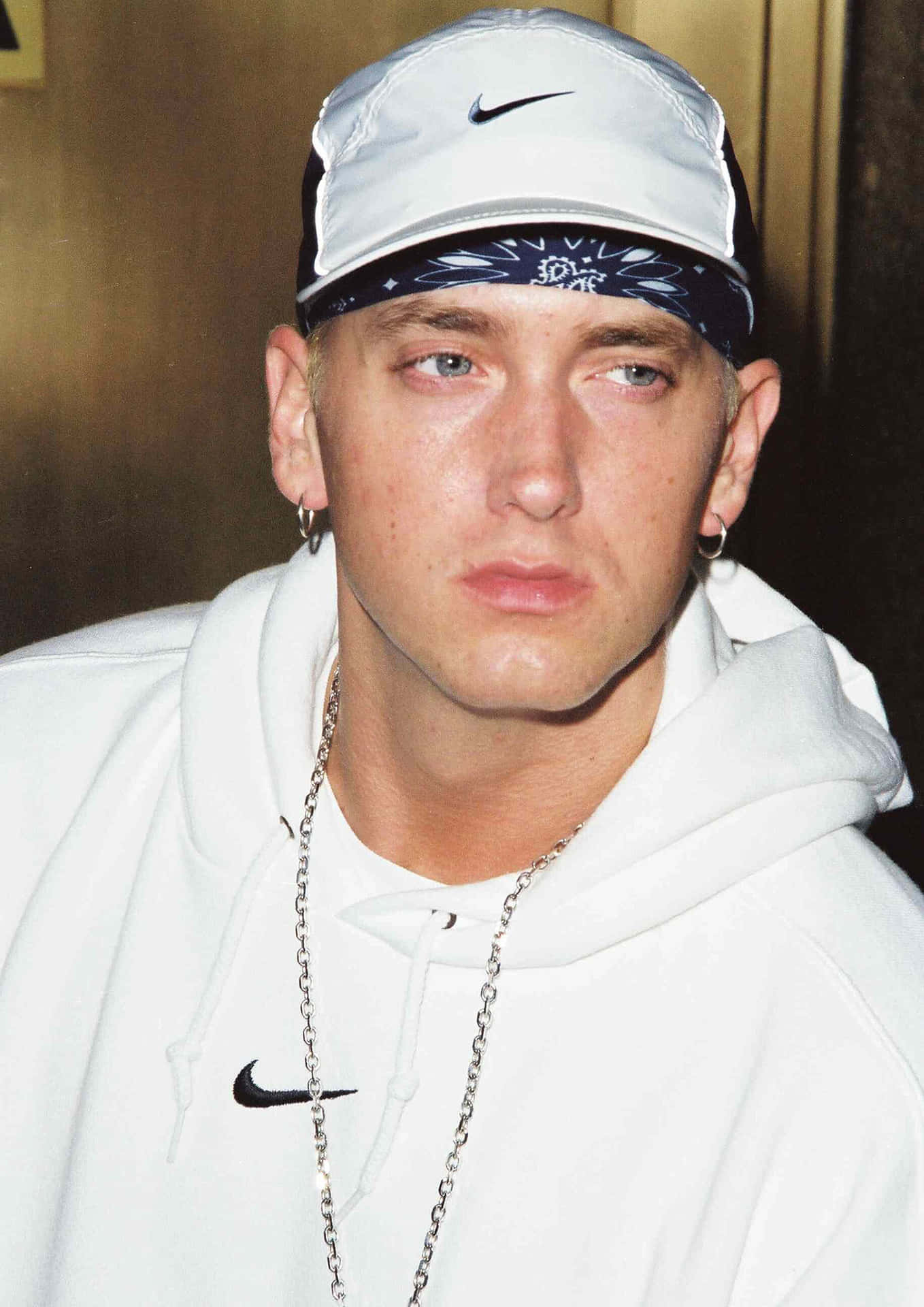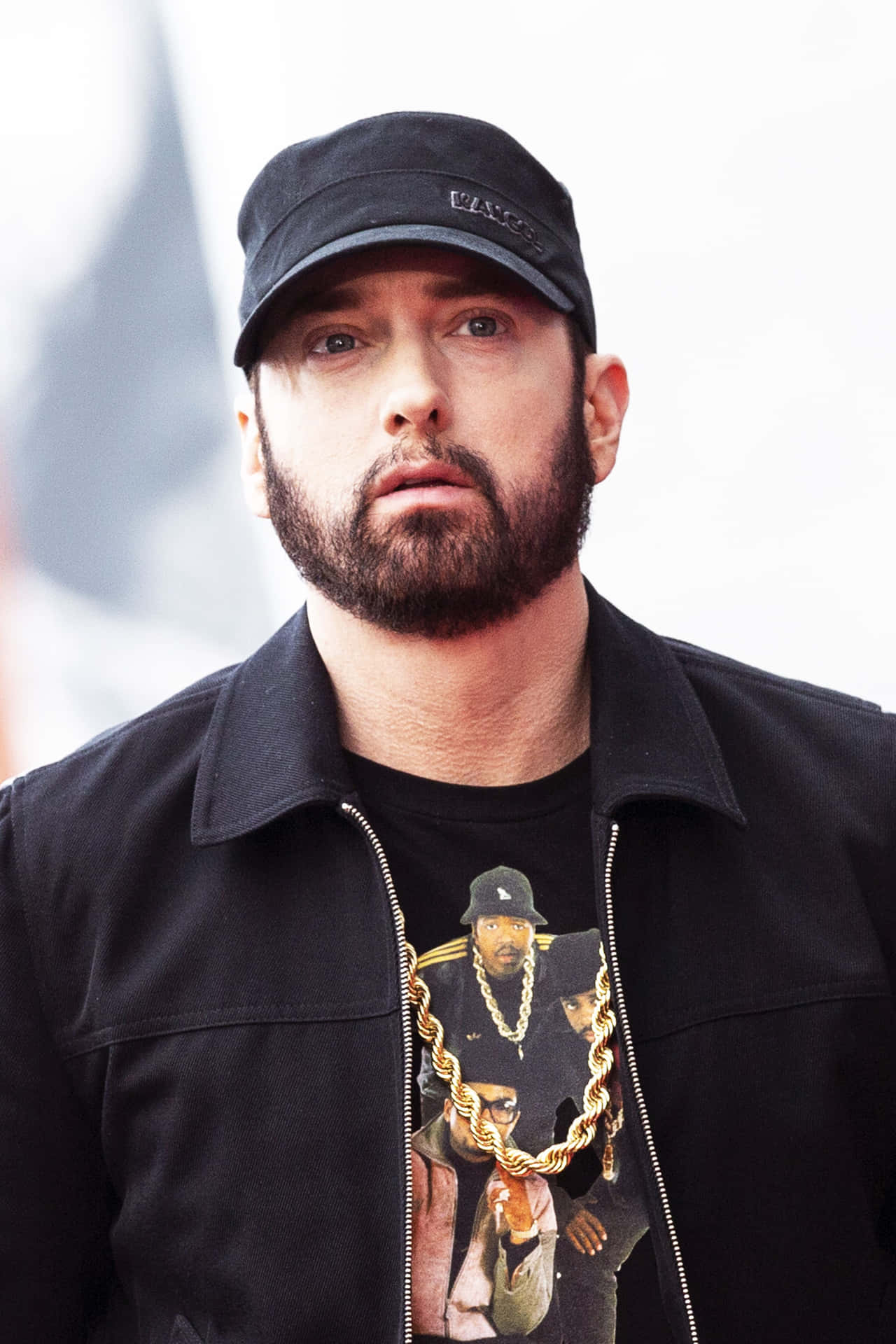Eminem 2000 - The Marshall Mathers LP Impact
The year 2000 was, in a way, a truly pivotal time for music, and for one particular artist, it solidified a place in popular culture that few ever reach. This period saw the arrival of an album that would change the way many people thought about rap music, pushing boundaries and sparking conversations everywhere. It was a moment when a distinctive voice, full of raw feeling and sharp observations, reached a massive audience, leaving a mark that remains clear even now.
During this stretch of time, the artist in question was, basically, seen by many as someone who stirred up a lot of discussion. His music, often quite direct and sometimes a little shocking, made people sit up and pay attention. It was a period where his creative output seemed to expand, taking on topics and styles that felt, you know, very new and, for some, a bit unsettling. This era really showed how one person could grab the public's ear and keep it, for better or for worse.
The sounds and stories from this particular year continue to resonate, offering a glimpse into a specific point in time for this musical figure. The influence of his work from this period can still be heard and felt, shaping how others approach their own art and how listeners interact with challenging themes. It truly was a time that set a course for much of what came after, in some respects, for the artist and for the wider music world.
- K Biermann
- Benny Blanco Sexiest Man Alive
- Katey Sagal Lifetime Movies
- March 18 Zodiac
- Tucker Carlson Wife
Table of Contents
- Who Was Eminem in 2000?
- Eminem's Personal Details
- What Made The Marshall Mathers LP So Significant?
- The Sound and Stories of Eminem 2000
- How Did Eminem Handle the Spotlight Back Then?
- The Brand of Eminem 2000
- Were There Other Eminem 2000 Moments?
- Leaks and Public Appearances for Eminem 2000
Who Was Eminem in 2000?
By the year 2000, the person known as Eminem had, in a way, already made quite a splash. He had put out music that got people talking, and his unique way of putting words together had caught the attention of many. This was a period where he was, basically, becoming a household name, even if some of the things he talked about were, you know, a little bit uncomfortable for some listeners. He was building a reputation as someone who wasn't afraid to speak his mind, no matter what.
His background, coming from a place where opportunities were not always easy to find, gave his words a certain weight. He spoke about his life experiences, his struggles, and his thoughts on the world around him, often with a raw honesty that many people found compelling. It's almost as if he was giving voice to feelings that others might have had but couldn't express themselves. This connection with his audience was, in some respects, a major part of his appeal during this particular time.
The way he presented himself, too, was a departure from what many expected. He had a character, Slim Shady, that allowed him to explore darker, more provocative themes, which, you know, really added another layer to his artistic output. This dual identity, between the personal Marshall Mathers and the outrageous Slim Shady, gave him a lot of room to create and, arguably, kept people guessing about what he might do next. This period truly cemented his public image.
- Pk And Dorit
- When Does Black Friday End On Amazon
- Jack Kilmer Movies
- Aaliyah Plane Crash
- Halle Berry Daughter
Eminem's Personal Details
To give you a little more context about the individual at the center of all this attention during the Eminem 2000 era, here are some personal facts that help paint a picture of who he is.
| Birth Name | Marshall Bruce Mathers III |
| Date of Birth | October 17, 1972 |
| Place of Birth | St. Joseph, Missouri, U.S. |
| Profession in 2000 | Rapper, Songwriter, Record Producer |
| Active Years (2000) | Late 1990s - Present |
These details, you know, just give a quick look at the person behind the music. It helps to remember that before he became this huge public figure in 2000, he was, in some respects, just a person with a story to tell. His journey to this point was, arguably, a long one, filled with its own set of challenges and triumphs. Knowing a little about his beginnings can make his artistic output from this period even more interesting to think about.
What Made The Marshall Mathers LP So Significant?
The year 2000 saw the arrival of a really important piece of work from Eminem, an album called "The Marshall Mathers LP." This collection of songs was, basically, his third full studio album, and it came out on May 23rd. It was put out by Aftermath Entertainment and Interscope Records, which, you know, are big names in the music business. This particular record was, in a way, a huge moment for him and for the music world generally.
The creation of this album involved a lot of effort and thought, from the beats to the words. It was a project that, in some respects, really showed off his skill with language and his ability to tell a story through song. The stories he shared were, often, very personal, sometimes even a little bit shocking, but they connected with a lot of people. This record was, apparently, more than just music; it was a kind of statement.
What made "The Marshall Mathers LP" truly stand out was how it took the conversations around Eminem, which were already quite heated, and pushed them even further. By 2000, he was, you know, already seen as someone who caused a lot of talk in the music scene. But with this album, he seemed to take things to a whole new level, addressing his critics and exploring themes that many found, arguably, quite unsettling. It was a record that you couldn't easily ignore, and that, in a way, was part of its lasting impact.
The Sound and Stories of Eminem 2000
When you listen to "The Marshall Mathers LP" from the Eminem 2000 period, you hear a very distinct sound and a collection of stories that, you know, really stand out. The record features powerful tracks that make his skill with words and his storytelling ability very clear. He had a way of painting pictures with his language, making listeners feel like they were right there with him, experiencing what he was describing. This kind of connection is, basically, what makes art truly memorable.
The way he put his verses together was, in some respects, quite special. The text mentions a verse that was "twisted, rhythmic," which really captures the feel of his writing at that time. He could take words and arrange them in ways that felt both natural and, arguably, quite innovative. This approach to writing lyrics was, you know, a big part of why so many people were drawn to his music during this era. It wasn't just what he said, but how he said it.
The album's content was, often, very personal, sometimes even raw. There's a line from the text that points to this directness: "N1gga cast couched her and casted her off." This kind of language was, basically, part of his style, and it contributed to the album's reputation for being, in a way, very unfiltered. It was this willingness to be so open, even about difficult or controversial topics, that made the album feel, you know, very real to many listeners. It's almost as if he held nothing back.
How Did Eminem Handle the Spotlight Back Then?
Being a huge public figure in 2000 meant a lot of attention, and for Eminem, that spotlight came with its own set of challenges. There are stories that suggest he was, you know, very much under the influence during that particular era. Accounts from people like 50 Cent, Dr. Dre, or members of D12 indicate that they would, apparently, often step in and take over interviews, answering questions that were meant for Eminem. This gives a picture of someone who was, perhaps, not always fully present in those public moments.
This period also saw his public image grow beyond just a musician. The text points out that Eminem's videos were, basically, big commercials for whatever items they were trying to sell to people. This shows how he was, in some respects, becoming more than just an artist; he was turning into a brand. And, you know, the text also suggests that many people were, arguably, not aware of this aspect of his public presence. Paul (Rosenberg), his manager, played a big part in shaping this image, too.
The idea of him as a "brand" is, in a way, a really interesting point about the Eminem 2000 period. It means that his name and his likeness were being used to sell things, showing how widely recognized he had become. This move from just being a rapper to also being a commercial entity is, you know, a common path for very popular figures, but it was, basically, becoming very clear for him around this time. It highlights the commercial side of his fame, which, in some respects, was just as significant as his music.
The Brand of Eminem 2000
The concept of Eminem as a "brand" during the Eminem 2000 era is, you know, quite telling about his reach. It wasn't just about the songs he put out; it was about the entire package. His look, his voice, his public persona – all of it contributed to a recognizable identity that could be, basically, connected to various products. This kind of influence goes beyond just album sales; it shows a deep integration into popular culture.
The text mentions that his videos were essentially, in some respects, advertisements. This means that the visual side of his music was, arguably, also serving a commercial purpose. It’s a smart way to get his image and his music out there, while also, you know, generating extra income. This dual function of his videos highlights how much thought went into presenting him to the public, not just as an artist, but as a marketable figure.
Paul, who is often understood to be Paul Rosenberg, his long-time manager, was, very likely, instrumental in building this brand. Managing a public figure of Eminem's stature in 2000 would involve careful planning of his image, his appearances, and his commercial ventures. It's almost as if every move was calculated to ensure his continued relevance and, you know, his financial success. This partnership was, basically, key to how Eminem was presented to the world during this time.
Were There Other Eminem 2000 Moments?
Beyond the major album release, the Eminem 2000 period had other notable happenings that added to his story. For instance, there's talk of something called "straight from the lab 3," which, you know, represents the third time a sizable amount of his unreleased music became public without permission. The original "straight from the lab" collection, apparently, made its way out in 2003 and contained various tracks. These leaks are, in some respects, a curious part of his history, showing how much interest there was in his creative output, even before it was officially ready.
The text also mentions "Eminem Murdergram Deux," which is, you know, connected to LL Cool J and has a 2024 copyright. While this specific release is much later, its mention in the context of Eminem suggests a continued influence or perhaps a revisit of older material. It's almost as if his work from the 2000s continues to inspire or be re-imagined even decades later. This kind of lasting presence is, basically, a testament to the impact he had during that pivotal year.
Another interesting piece of information from the text is about 2 Chainz. He, apparently, shared some thoughts about his time in the recording studio with Eminem. This reflection happened while 2 Chainz was speaking with Shannon Sharpe on an episode of "The Club Shay Shay" podcast. These kinds of stories from other artists really give a sense of Eminem's reputation among his peers and, you know, the respect he commanded for his work, even years after the Eminem 2000 era.
Leaks and Public Appearances for Eminem 2000
The issue of unreleased music making its way out to the public was, you know, a recurring theme around the Eminem 2000 period. The mention of "straight from the lab 3" shows that this was, basically, a persistent challenge. These unauthorized releases give fans a glimpse into his creative process, but they also highlight the intense demand for anything he produced. It's almost as if people were so eager for his new material that they would find ways to get it, even if it wasn't officially out yet.
Public performances also played a big part in how Eminem connected with his audience during this time. The text specifically points to his performance of his popular song, "The Real Slim Shady," at the 2000 MTV Video Music Awards. This event took place on September 7, 2000, at Radio City Music Hall in New York City. These kinds of live appearances were, in some respects, crucial for him to showcase his stage presence and, you know, bring his music to life for a wider audience.
The text also includes a strong opinion about Eminem's rapping ability from that era, stating that at his "very best," he was "not rapping on some weirdo random sh1t." It goes on to say that there are, apparently, only "less than 10 rappers who could hang with him," specifically naming Canibus. This kind of praise, you know, really emphasizes the high regard some people had for his skill with words and his delivery during the Eminem 2000 period. It shows that he was seen as a truly top-tier artist by many who followed the music scene.
This article looked at the key aspects of Eminem's presence and influence in the year 2000. We discussed his significant album, "The Marshall Mathers LP," its release, and what made its sound and storytelling so impactful. We also explored how he managed his public image, the concept of him as a brand, and how others like Paul Rosenberg helped shape this. Furthermore, we touched upon other important moments from that time, including the unauthorized release of music, his collaborations, reflections from other artists, and his notable live performances. The piece aimed to give a clear picture of his standing and activities during that pivotal year.

Eminem | Hip Hop Wiki | FANDOM powered by Wikia

Download Legendary Rapper, Eminem | Wallpapers.com

Download Eminem Performing on Stage | Wallpapers.com